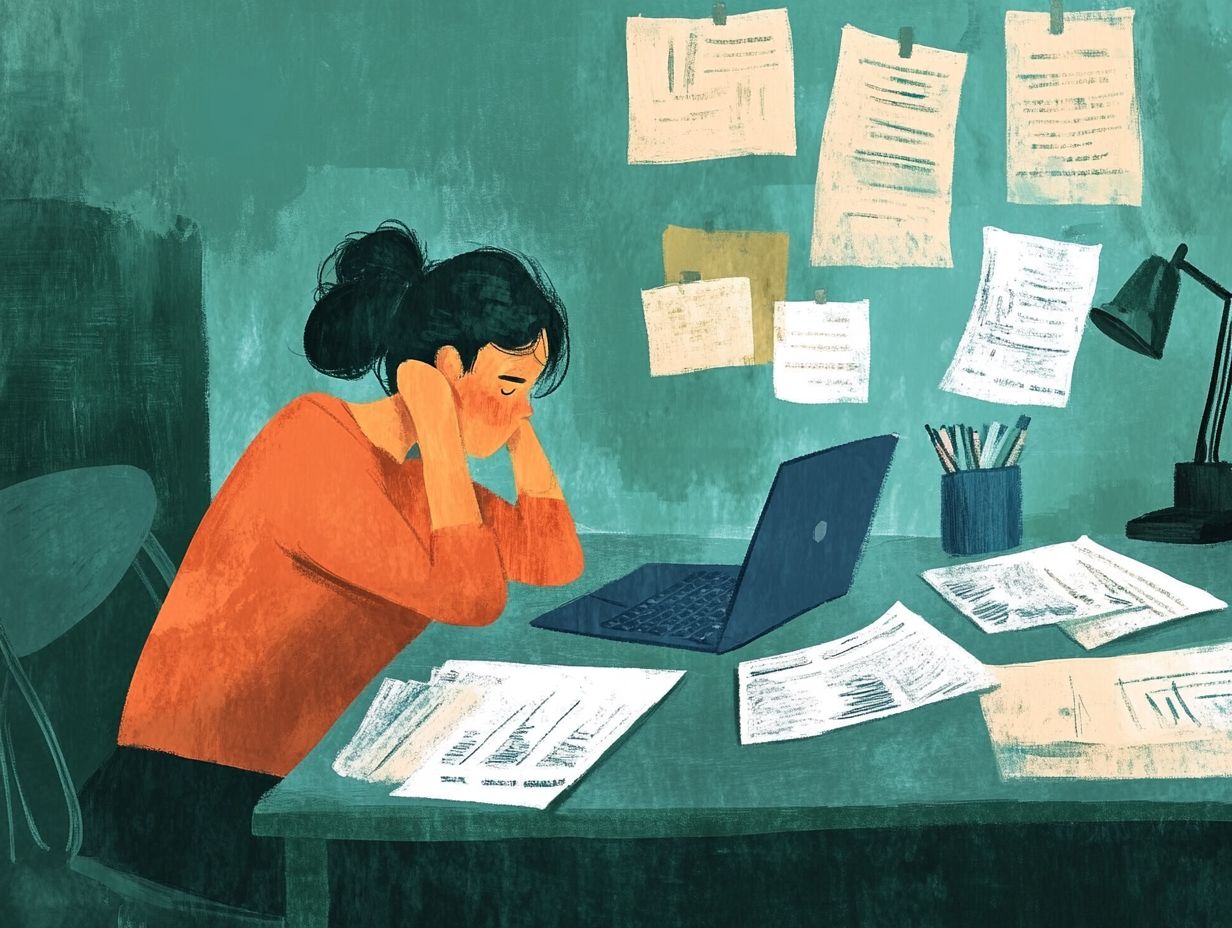Accessing financial aid for cancer care is essential for managing the high costs associated with treatment. Various support options, such as those offered by nonprofit organizations like the American Cancer Society and the Leukemia & Lymphoma Society, are available to help patients cover medical expenses.
Understanding these financial aid options can significantly reduce the financial burden, allowing cancer patients to focus on their recovery. Available aids cover a range of expenses including:
- Co-payments
- Transportation assistance
- Home care services
- Child care options
Eligibility for financial aid typically depends on eligibility guidelines such as income level, cancer diagnosis, and treatment costs. Gathering necessary documents and applying through appropriate channels can ensure patients receive the financial support they need.
Besides financial aid, alternatives such as community fundraising, negotiating medical bills, and utilizing payment plans are also viable options to manage healthcare costs effectively. For a comprehensive understanding of available resources and how to apply, organizations like the American Cancer Society, the Cancer Financial Assistance Coalition, and the Patient Advocate Foundation provide valuable guidance and support.
Key Takeaways:
Understanding Financial Aid for Cancer Care

Financial aid for cancer care involves various financial assistance options available to help cancer patients manage medical expenses during treatment.
Nonprofit organizations like the American Cancer Society and the Leukemia & Lymphoma Society offer financial resources and advocacy for cancer patients.
Understanding and accessing these financial aid options can reduce healthcare costs and burdens for cancer patients.
What is Financial Aid for Cancer Care?
Financial aid for cancer care includes assistance programs designed to help patients manage the costs of cancer treatment.
Financial aid covers expenses such as:
- Co-payments
- Transportation
- Housing
- Nutritional support
Financial aid programs alleviate the financial burden of cancer, enabling patients to focus on recovery.
Types of Financial Aid Available
Financial aid for cancer patients includes:
- Co-payment assistance
- Transportation assistance
- Home care services
- Child care options
Co-payment assistance covers out-of-pocket medication costs.
Transportation assistance helps patients reach medical appointments.
Home care services provide support at home for daily living needs.
Child care options support caregivers by managing child supervision.
Eligibility for Financial Aid
Eligibility for financial aid in cancer care depends on specific criteria such as income level, cancer diagnosis, and treatment costs.
Organizations like the American Cancer Society and Leukemia & Lymphoma Society provide financial aid based on these criteria.
Understanding these eligibility guidelines helps cancer patients access financial resources for their care.
Requirements and Criteria

Requirements for financial assistance programs include submitting documentation like tax returns, payslips, and medical bills to validate financial status. It’s crucial to consult a patient advocate during this process.
Criteria often include income limits based on household size and local cost of living.
Certain cancer diagnoses may affect eligibility, with some programs focusing on specific cancer types or stages.
Organizations like the Patient Advocate Foundation can help patients understand and meet these criteria.
Applying for Financial Aid
Applying for financial aid involves gathering documents like proof of income, medical bills, and cancer diagnosis confirmation. Genetic counseling may also be required for specific cases to determine eligibility for certain types of assistance.
Applicants should seek assistance from a patient advocate to navigate the application process effectively.
Submitting accurate and complete information ensures access to financial support for managing healthcare costs, including practical needs such as transportation and home care.
Steps to Take and Documents Required
- Identify financial aid programs that match specific needs.
- Gather required documents: income statements, medical bills, and identification proof.
- Complete forms accurately to avoid delays or denial.
- Submit application with accurate documentation.
Documents required for financial aid application include:
- Income statements
- Medical bills
- Identification proof
Resources for Finding Financial Aid
Resources for finding financial aid for cancer care include the American Cancer Society, the Leukemia & Lymphoma Society, and the Cancer Financial Assistance Coalition.
These organizations offer financial support and guidance to help cancer patients manage treatment costs.
Organizations and Programs Offering Assistance

Organizations and programs offer financial assistance to cancer patients to help manage healthcare costs and related expenses.
Programs like Triage Cancer, the Sam Fund, and the Cancer Financial Assistance Coalition provide resources for covering medical bills, living expenses, and transportation costs.
These organizations offer databases with eligibility criteria and application processes to assist patients in accessing necessary financial aid.
Alternatives to Financial Aid
Alternatives to financial aid for cancer patients include:
- Seeking assistance from family and friends.
- Negotiating with healthcare providers for reduced fees.
- Utilizing payment plans offered by medical facilities.
- Using crowdfunding platforms for financial support.
- Organizing community fundraising events.
Other Options for Managing Cancer Care Costs
Options for managing cancer care costs include community fundraising, negotiating medical bills with healthcare providers, and utilizing structured payment plans.
- Community fundraising helps gather financial support from friends and family.
- Negotiating bills can reduce costs, with many providers open to discounts or payment arrangements.
- Payment plans allow spreading expenses over time, making costs more manageable.
Frequently Asked Questions
1. How can I access financial aid for cancer care if I do not have health insurance?

If you do not have health insurance, you may still be eligible for financial aid through government programs, non-profit organizations, or hospital financial assistance programs. You can also speak to your healthcare provider or social worker for guidance on accessing financial aid for cancer care.
2. Can I apply for financial aid for cancer care if I have private health insurance?
Yes, even if you have private health insurance, you may still be eligible for financial aid for cancer care. Private insurance may not cover all medical expenses related to your cancer treatment, and financial aid can help cover these additional costs.
3. How do I know if I am eligible for financial aid for cancer care?
Eligibility for financial aid for cancer care varies depending on the specific program or organization. Generally, eligibility is based on income, medical needs, and specific cancer diagnosis. It is best to research different options and speak with a healthcare provider or social worker for guidance.
4. Can I receive financial aid for cancer care if I am already receiving disability benefits?
Yes, you may still be eligible for financial aid for cancer care even if you are receiving disability benefits. Disability benefits may not cover all medical expenses, and financial aid can help cover additional costs related to your cancer treatment.
5. Are there any limitations on how I can use financial aid for cancer care?
The use of financial aid for cancer care may be limited depending on the program or organization providing the aid. Some financial aid may only cover specific medical expenses, while others may have more flexibility. It is important to clarify any limitations beforehand.
6. Can I receive financial aid for cancer care if I am receiving treatment outside of the country?
It is possible to receive financial aid for cancer care if you are receiving treatment outside of the country. However, eligibility and coverage may vary depending on the program or organization providing the aid. It is best to research different options and speak with a healthcare provider or social worker for guidance.





